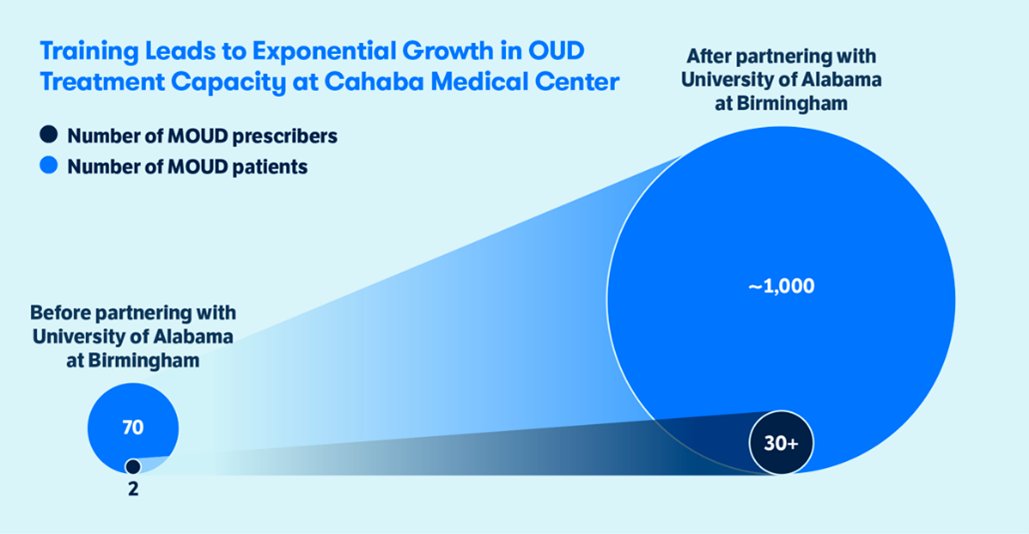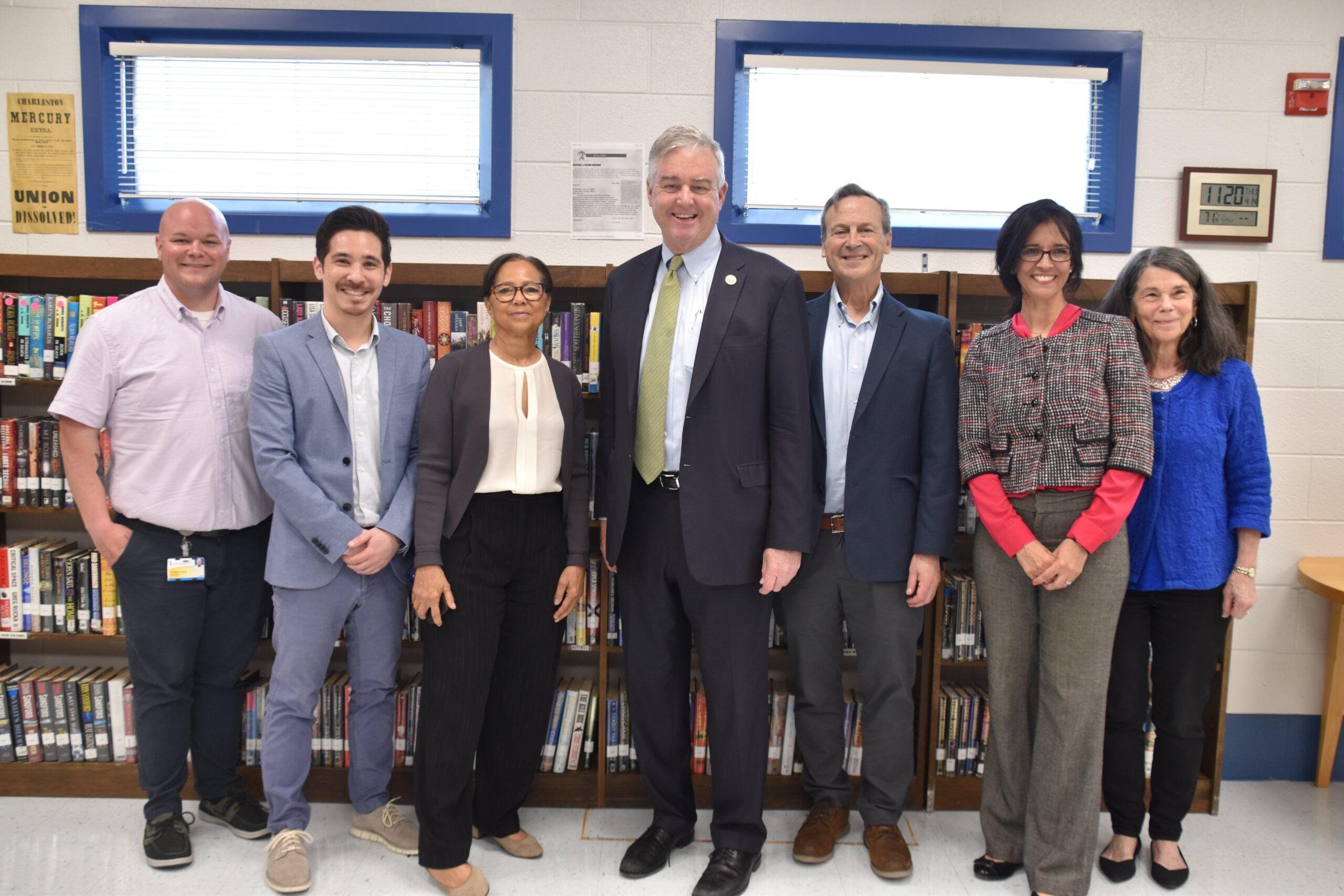News & Updates — President’s Update
President’s Update, Apr. ’22: Launching New Programs and Spreading Promising Approaches
April 28, 2022So far, 2022 has been a full and exciting year at FORE. After publishing our first Annual Report in January, we’ve continued to expand our network of grantees and collaborators, finding creative ways to further our mission to end the opioid crisis.
We’re now being helped in that mission by Brian Byrd, M.P.A., who joined us as a senior program officer. Byrd brings decades of experience in philanthropy, most recently at the New York State Health Foundation where he managed a $3 million grantmaking program that supported efforts to improve public health.
Generating Innovative Approaches
In February, we awarded 11 grants in our new Innovation Program, which aims to generate novel solutions to longstanding problems that stymie efforts to help people with opioid use disorder (OUD). The projects were selected through a request for proposals that yielded 479 submissions from around the country — evidence of a breadth of activity and appetite for innovation.
We featured one of the Innovation Program grantees, Jonathan Avery, M.D., associate professor of psychiatry and director of the Substance Use and Stigma of Addiction Program at Weill Cornell Medicine in New York City, in a recent spotlight. Avery is collaborating with colleagues at the MIT Media Lab and the Dalio Center for Health Justice at New York–Presbyterian to develop a virtual role-playing tool designed to build physicians’ empathy for patients with OUD.
Moving Upstream: Promoting Prevention
In March, we awarded nine more grants to organizations that are building on evidence-based approaches to preventing substance use disorder. The goal of this new program is to break what can be cycles of addiction across generations and head off adverse childhood experiences that not only cause trauma but can place children at greater risk of developing substance use disorders themselves.
Some of the projects — selected from 400 applications — are offering services to children affected by their parents’ substance use or helping parents build skills; others are training educators and school-based health care providers in prevention methods or exploring ways of integrating substance use disorder prevention programs into pediatric practice. The projects are reaching high-risk groups, including American Indians; families affected by substance use disorder, mental illness, and homelessness; and families in low-income communities.
Building on Efforts to Expand Access and Learn from COVID Responses
As we launch new programs, we continue to see the impacts of our inaugural round of grants, made in 2020.

In an issue brief, we showcase FORE grantees that are training primary care providers to offer OUD treatment — substantially expanding access to affordable services in their regions.
In a recent spotlight, we share lessons from an international collaborative of social scientists, community researchers, and public health clinicians funded by FORE to study how grassroots innovations and social policies preserved access to OUD treatment during the pandemic and reduced drug-related harms. Findings from this initiative, co-led by Helena Hansen, M.D., Ph.D., chair of the Research Theme in Health Equity and Translational Science at UCLA’s David Geffen School of Medicine, were also featured in a special supplement of the American Journal of Public Health.
Looking Forward
In the coming months, we will continue to share lessons and practical guidance from our first round of grants while engaging policymakers, funders, and health care providers in efforts to spread these promising approaches. Starting in June, we’ll launch a quarterly webinar series showcasing these approaches.

Congressman David Trone joined FORE grantees at the University of Maryland and FORE staff for a site visit at a county jail in Cumberland, MD.
I’m also looking forward to visiting more of our grantees to see their progress firsthand. This month, we joined Eric Weintraub, M.D., a psychiatrist at the University of Maryland School of Medicine in Baltimore, on a visit to a county jail in Western Maryland. In a FORE-funded project, Weintraub and his team are using telemedicine to deliver medications for OUD (MOUD) to incarcerated individuals at three county jails. Individuals in the program also receive help in transitioning to ongoing care upon release. On the visit, Senior Program Officer Dr. Ken Shatzkes and I were joined by Congressman David Trone and Craig A. Robertson, the sheriff of Allegany County, and met with participants who are receiving MOUD — providing an important reminder of how treatment can help people survive their addiction and change their lives.
Karen A. Scott, MD, MPH
President